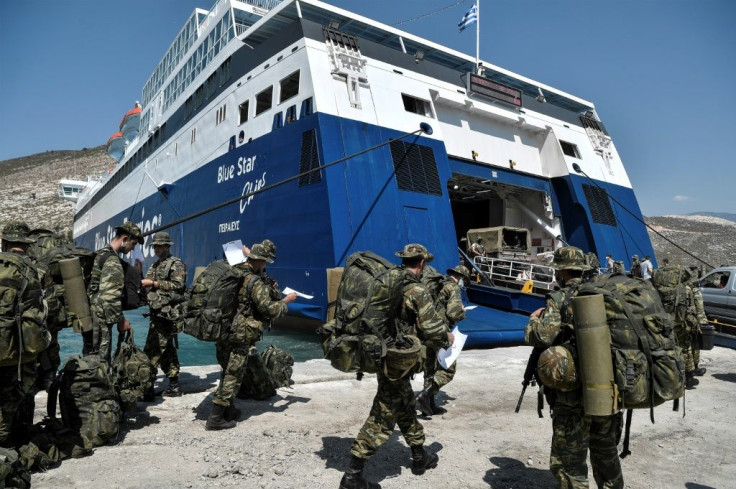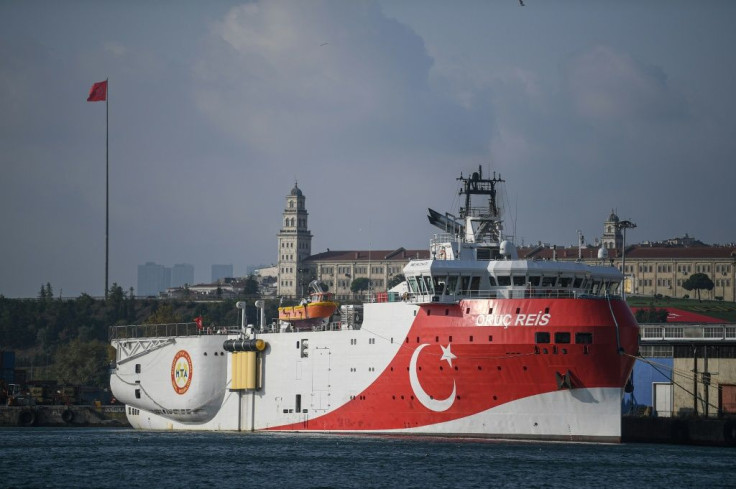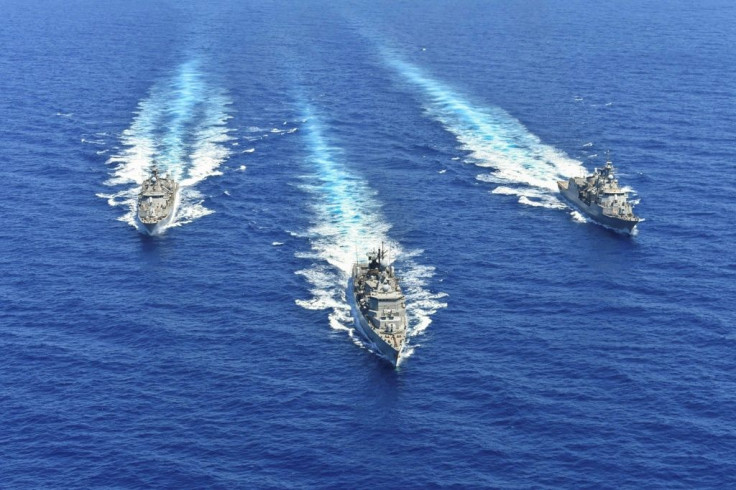Turkey Launches New Military Drills As East Med Tensions Mount

Turkey on Saturday launched new military drills in the eastern Mediterranean and Greece accused Turkish jets of an incursion as tensions mount in a maritime standoff between the NATO members.
The confrontation has reignited a longstanding rivalry over disputed maritime rights and gas resources between Greece and Turkey and they have begun staging competing naval drills.
In a message on NAVTEX, the international maritime navigational system, Turkey said it would carry out "gunnary exercises" from Saturday until September 11 in a zone off the southern Turkish town of Anamur, north of the island of Cyprus.
Ankara had already announced on Thursday that military exercises would take place on Tuesday and Wednesday in a zone further east.
In another sign of the volatility, Greece's national defence agency, HNDS, said Turkish fighter planes had on Friday entered the Athens Flight Information Region (FIR), the area where Greek authorities are responsible for air traffic.
The incursion happened while four Greek F-16 fighter aircraft were escorting a US strategic B-52 bomber plane as part of the "Allied Sky" mission, in which six US bombers are flying over all 30 NATO nations in Europe and North America in a single day to display the Alliance's solidarity.
The Turkish aerial intrusion was a "provocative and anti-ally" stance, and Greek fighters chased away the Turkish planes, the HNDS said.

The crisis has split members of the NATO alliance and in a phone call with Turkish President Recep Tayyip Erdogan on Friday, alliance chief Jens Stoltenberg stressed the need for "dialogue and de-escalation".

Greece and Turkey were already divided on significant issues including migration and Byzantine heritage in Istanbul and tensions over the island of Cyprus.
But the discovery of hydrocarbon reserves in the eastern Mediterranean has further strained relations, with Turkey rejecting calls from the EU and Athens to immediately stop energy exploration in disputed waters.
It was the deployment of the Turkish research vessel Oruc Reis into Greek waters accompanied by Turkish warships on August 10 that caused the current spike in tensions.
On Friday Turkey's defence ministry said that the day before its fighter jets had intercepted six Greek aircraft which were approaching a zone where a Turkish research ship was deployed, forcing them to turn around.

The European Union on Friday warned Turkey it could face fresh sanctions -- including tough economic measures -- unless progress is made in reducing soaring tensions.
Turkey responded angrily to the warning.
"The fact that the EU is appealing for dialogue on the one hand and at the same time making other plans reflects a lack of sincerity," Vice President Fuat Oktay said Saturday.
"Turkey will not hesitate to defend its interests," he said.
Greece has also riled Turkey with plans to expand its coastal zone into the Ionian Sea by six nautical miles under international maritime law.
"You think we would accept such a thing?" thundered Otkay on Saturday, referring to Greece's maritime border plans.
"If this is not casus belli, then what is it?" he said using a Latin term for an act or event used to provoke or justify war.
This immediately sparked a strong response from Athens.
"We urge Turkey to understand that the international law is binding for all countries of the world. It's not applied selectively," the Greek foreign ministry said in an English statement.
The Turkish presidency said Erdogan has told Stoltenberg that "NATO should fulfil its responsibility against unilateral steps that disregard international law and harms regional peace."
gkg/pvh/pma/har
© Copyright AFP {{Year}}. All rights reserved.





















